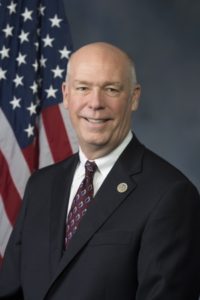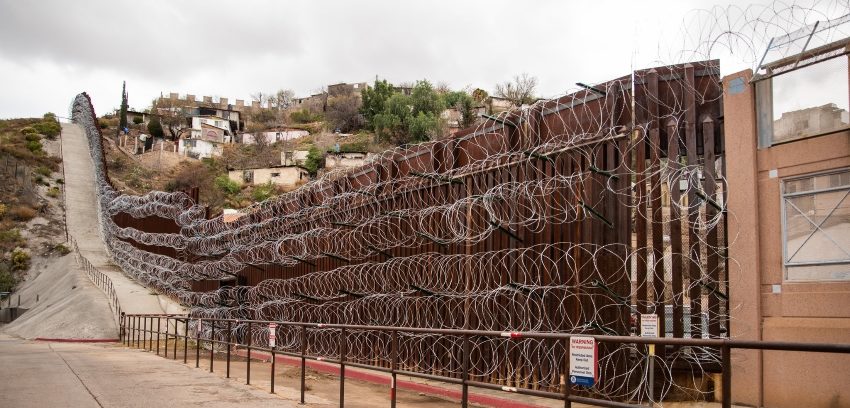Rep. Greg Gianforte falsely claimed last week that the Trump administration’s plan to use $601 million from the Treasury Department’s controversial forfeiture fund for a wall on the Mexican border was the same as Mexico paying for it.
In a radio interview on April 26, Gianforte, R-Mont., said that money would be combined with the $1.4 billion approved by Congress to build the barrier.

Gianforte
“It added to that $1.4 billion,” he said on Northern Broadcasting System’s “Voices of Montana.” “So, in a very real sense, the Mexicans are paying for the wall.”
In reality, that fund is made up of cash and property seized by Americans and foreigners alike in criminal and civil cases across the country, not just that seized by Mexican nationals along the southern border.
The Treasury Department’s 2017 accountability report cited examples of major seizures in places far from the border — Guam, Miami, Philadelphia and Baltimore.
In the interview, Gianforte said Customs and Border Protection officers in Arizona told him at their checkpoint alone, they intercepted $10 million in cash going south as part of the drug trade in a three-month span.
“Understand, this is a multibillion-dollar business, this drug cartel,” he said. “The drugs come north, the cash goes south. They’re not using Western Union to send cash back on a wire.”
The Treasury fund takes in assets seized by several agencies — the Coast Guard, Customs and Border Protection, the Internal Revenue Service, Immigration and Customs Enforcement, and the Secret Service — in civil and criminal investigations, including some that don’t result in charges.
Libertarians and groups like the American Civil Liberties Union have long complained that asset forfeiture is unfair, and one of Gianforte’s Republican colleagues, Rep. Justin Amash of Michigan, condemned Trump’s plan to use the fund for wall construction.
“No, @POTUS should not use asset forfeiture money to pay for a wall,” Amash tweeted in January. “Civil asset forfeiture is immoral, and any funds the government took without due process should be returned to the persons from whom they were stolen.”
Likewise, analysts like Jason Snead at the conservative Heritage Foundation have concluded the Treasury and Justice departments’ forfeiture funds warp law enforcement priorities, particularly through programs that share proceeds with state and local agencies that take money under state law.
“Civil forfeiture has skewed law enforcement priorities for 30 years, allowing these agencies to raise and spend substantial sums of money with little oversight or accountability,” Snead wrote in 2015. “In the process, many law enforcement agencies have grown dependent on the proceeds of forfeiture to finance their operations.”
Gianforte, who was first elected to Congress in 2017 the day after being arrested for assaulting a reporter, said last month that he is “seriously considering” running for Montana governor next year.
Gianforte was the GOP nominee for governor in 2016, but he lost to incumbent Democrat Steve Bullock despite Trump carrying the state with more than 57 percent of the vote.

